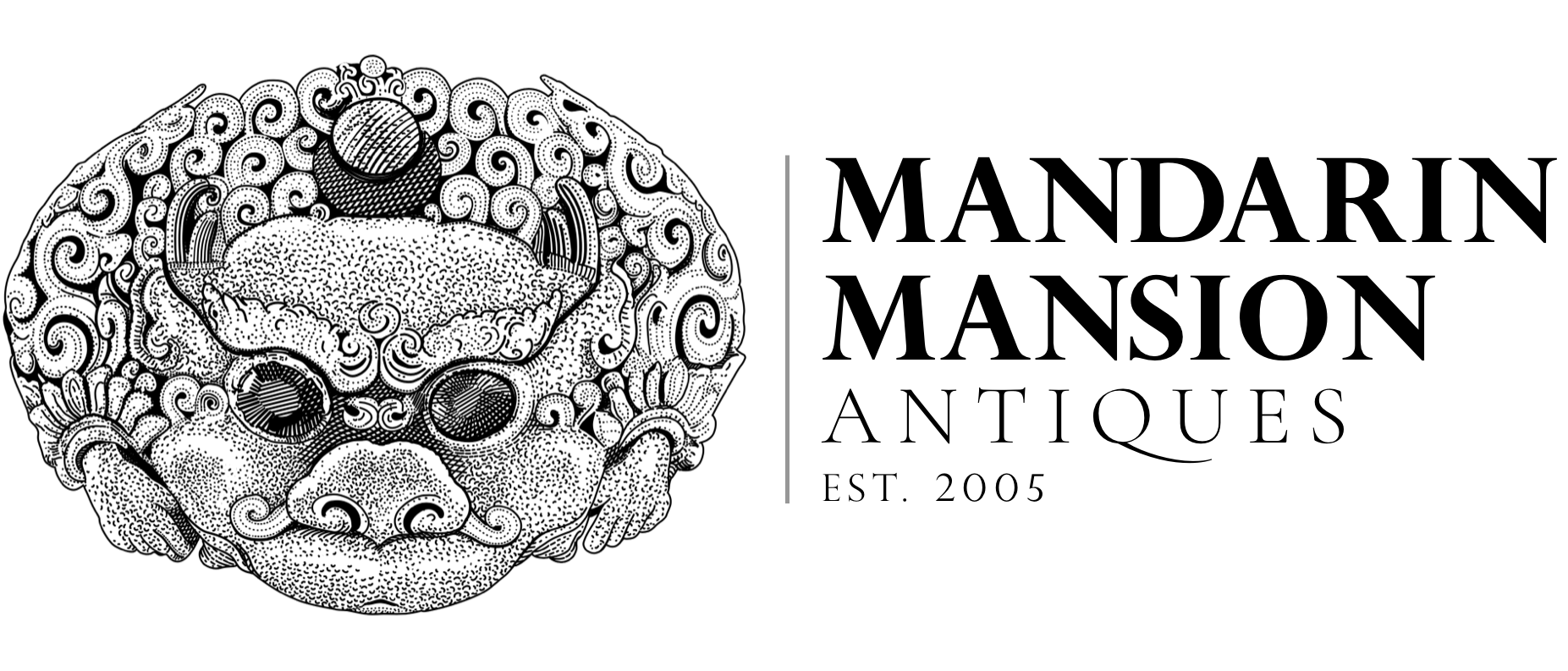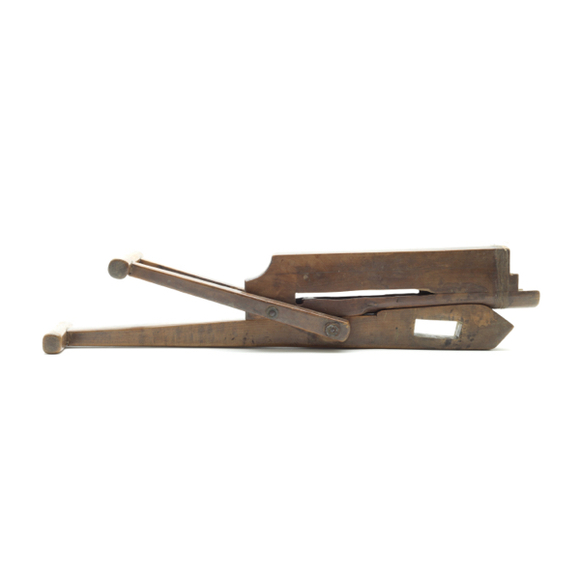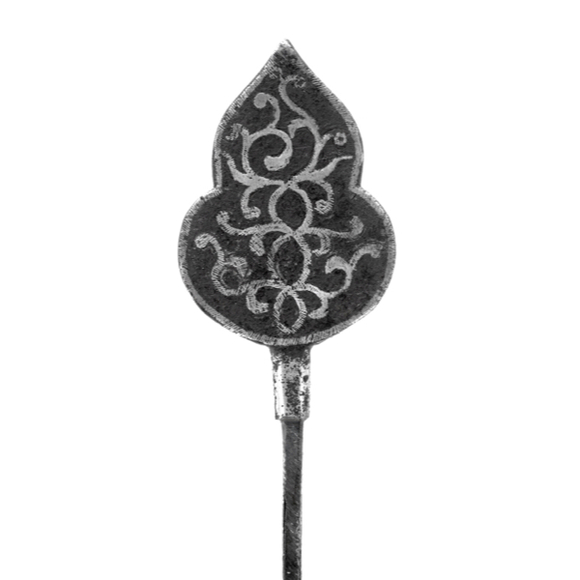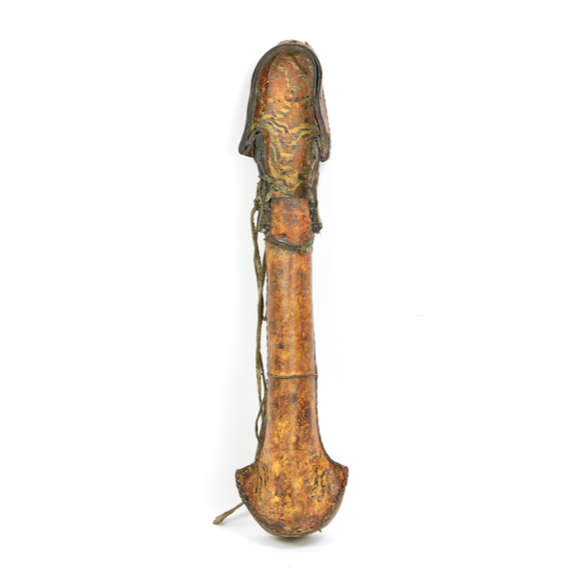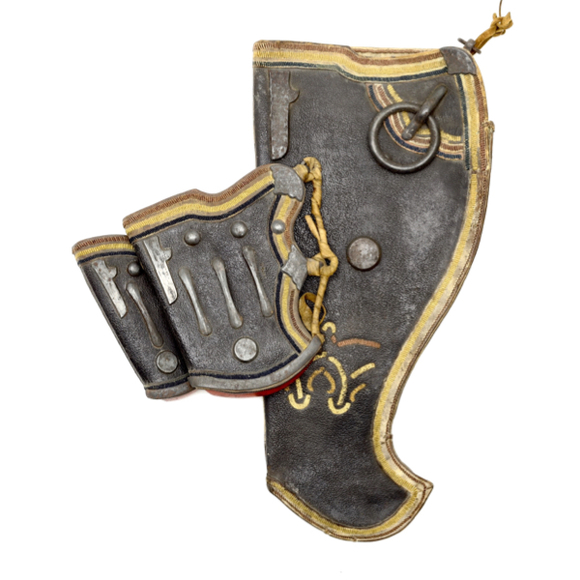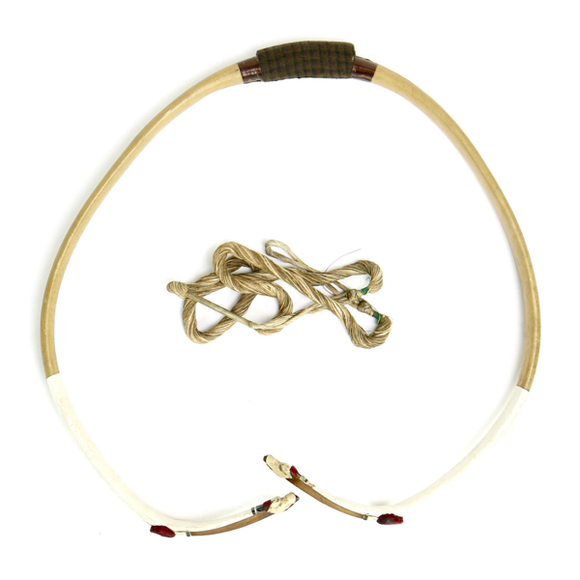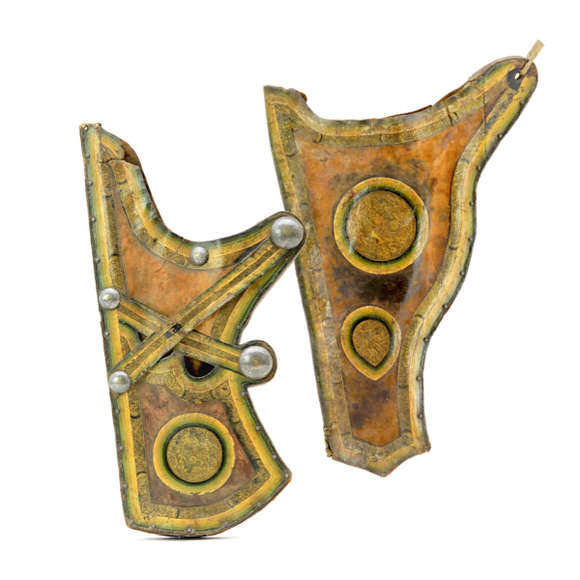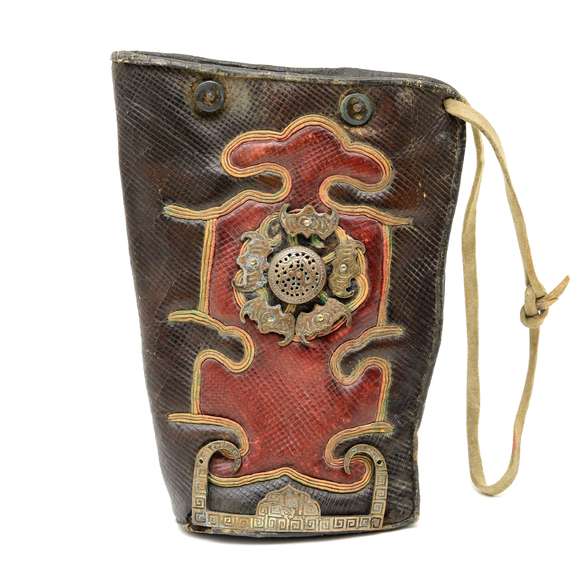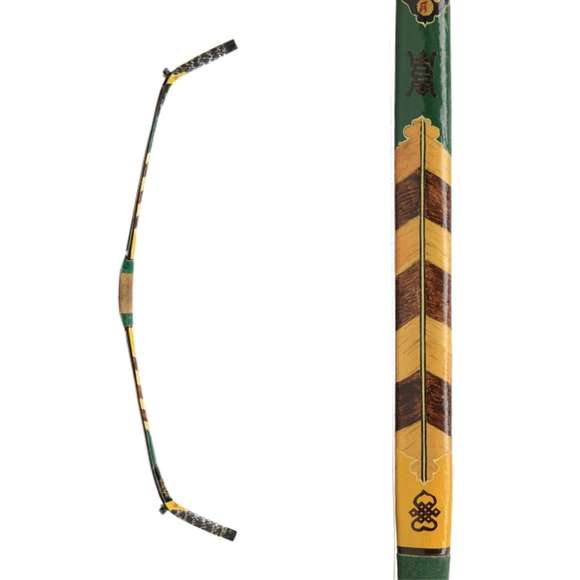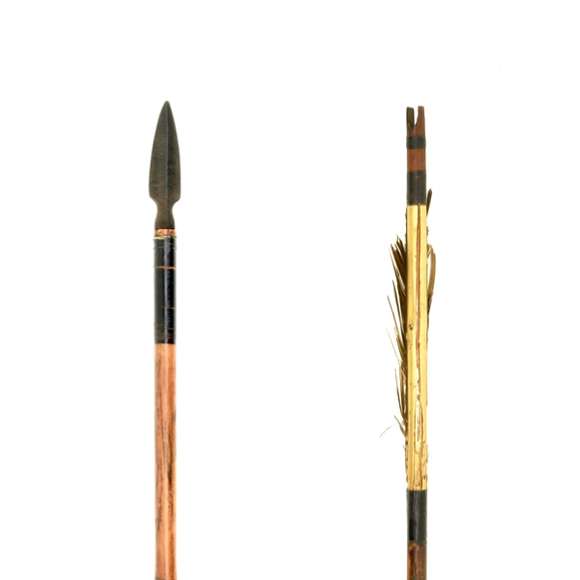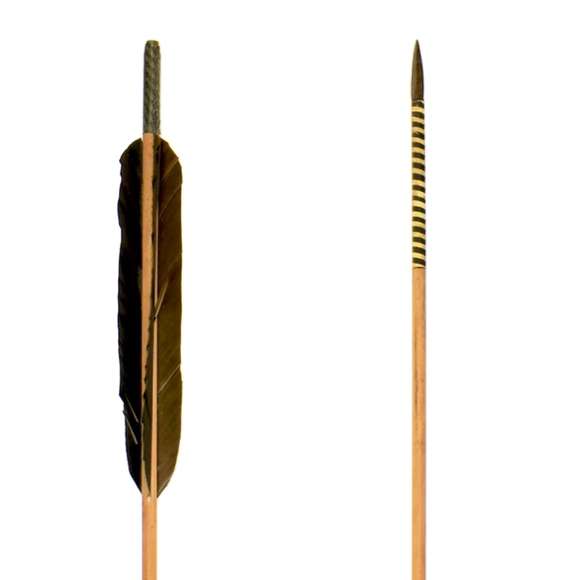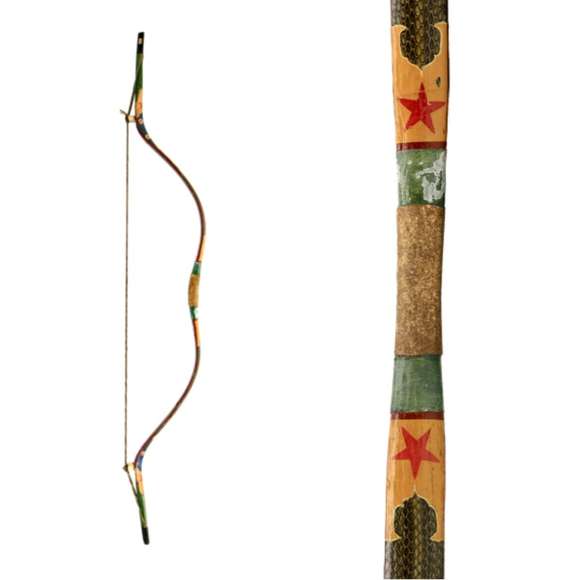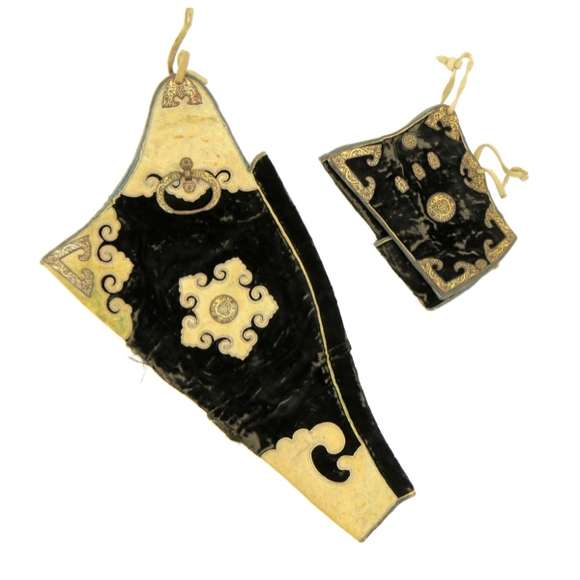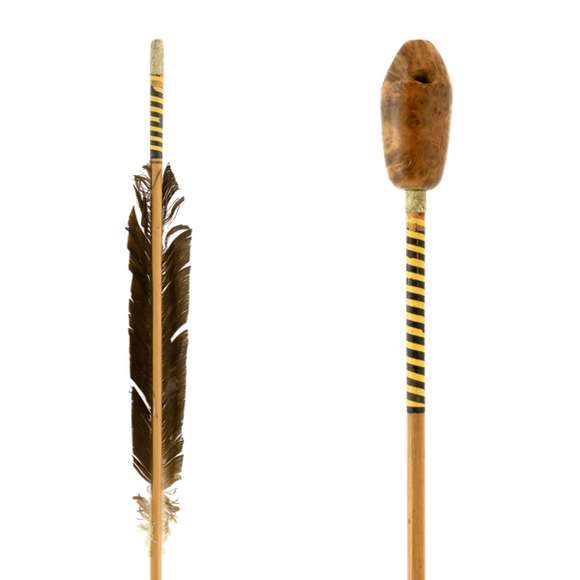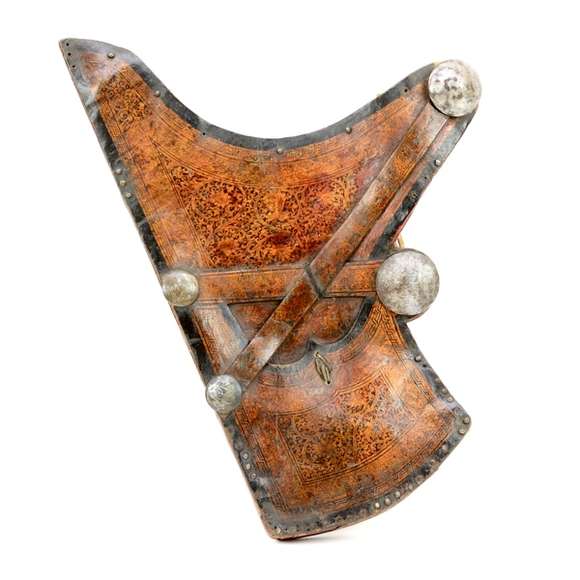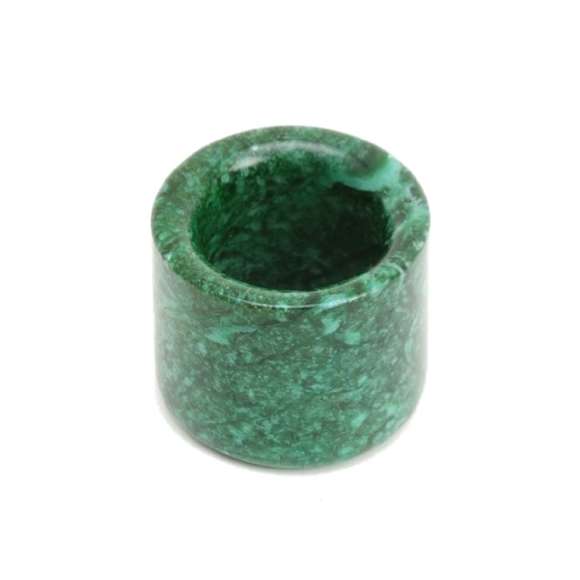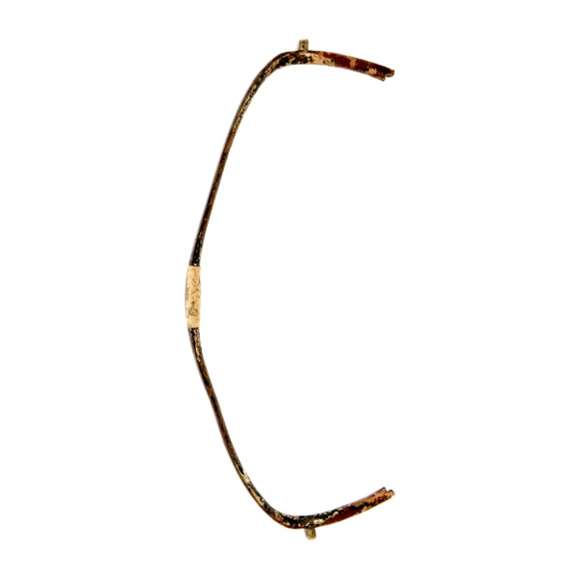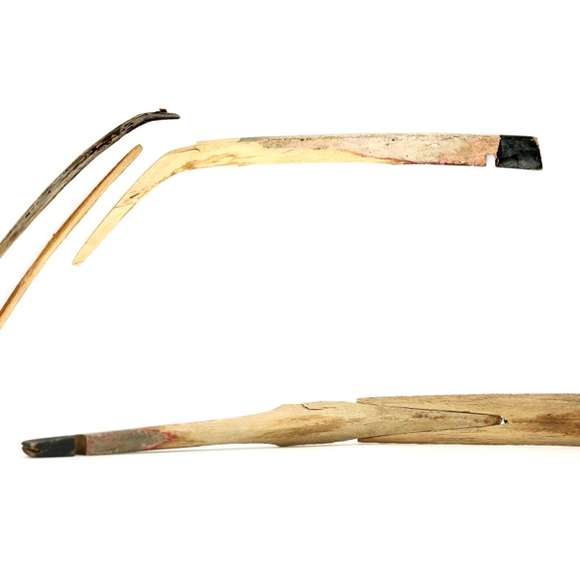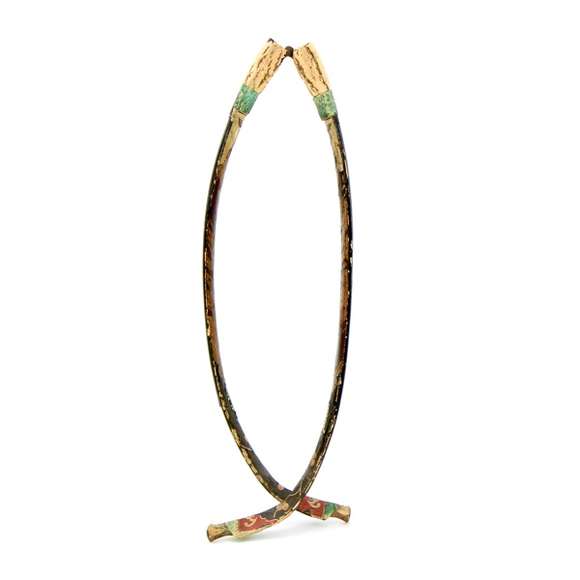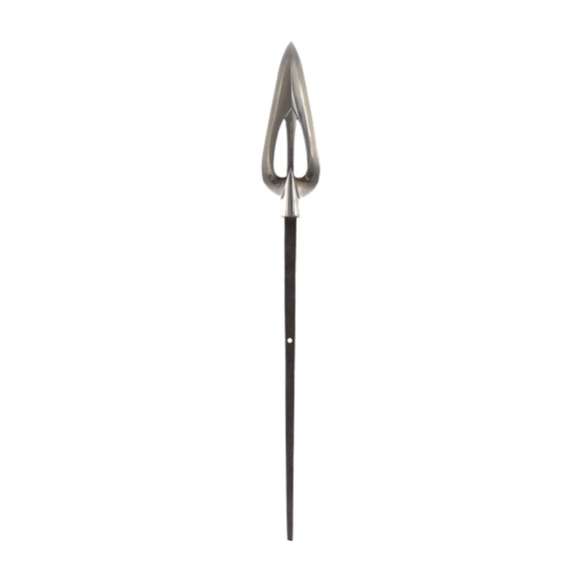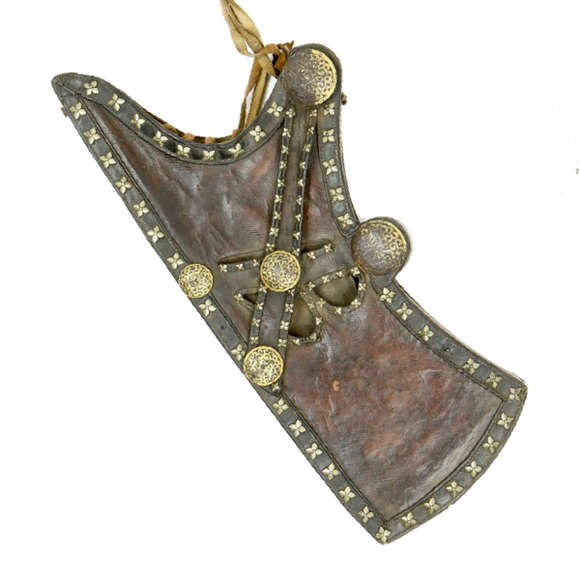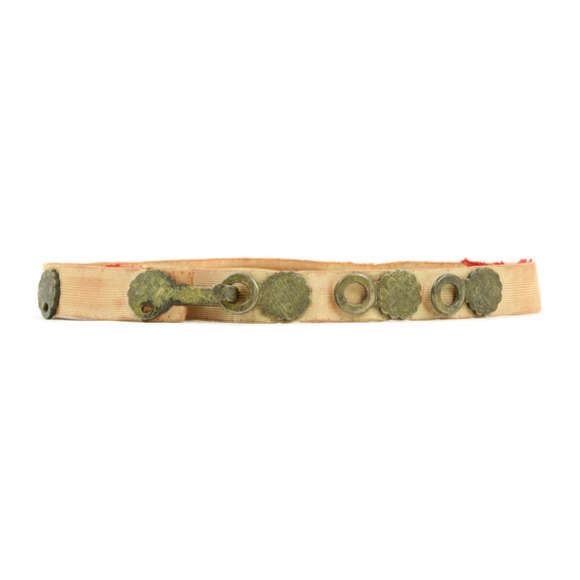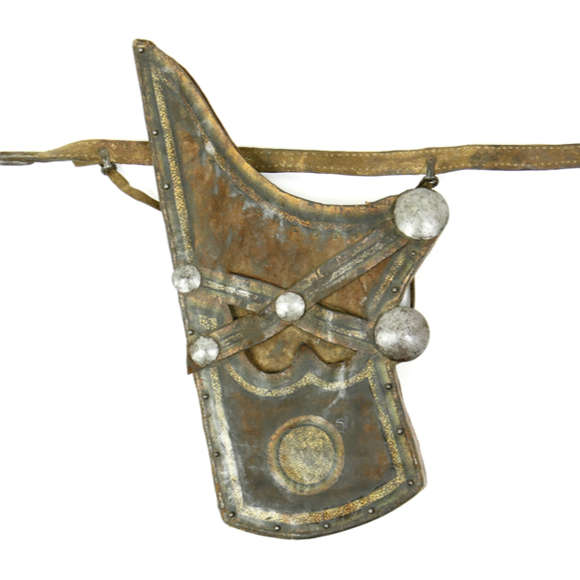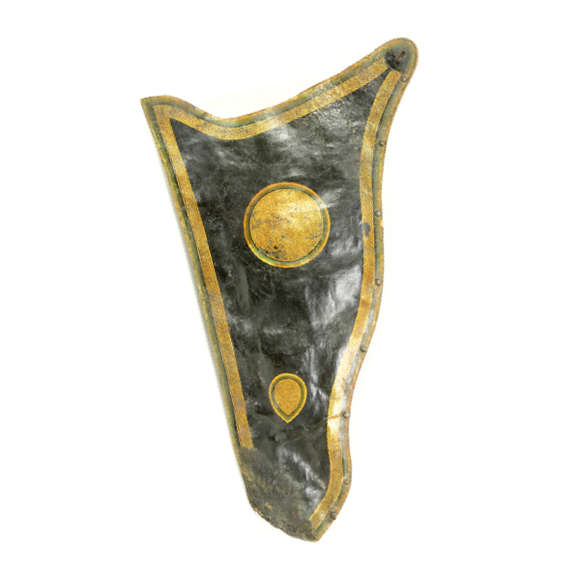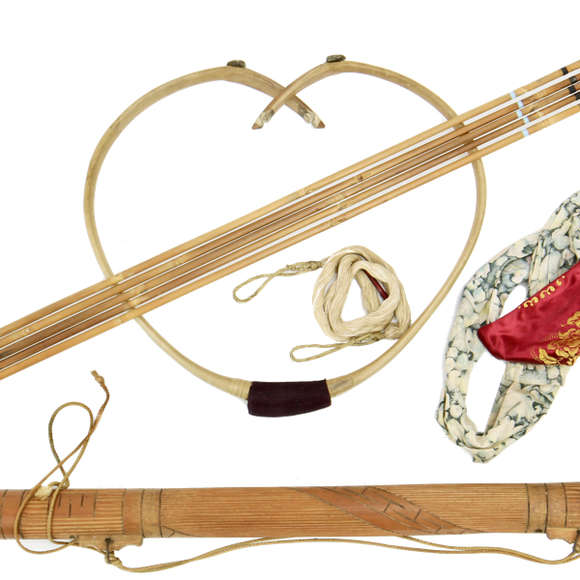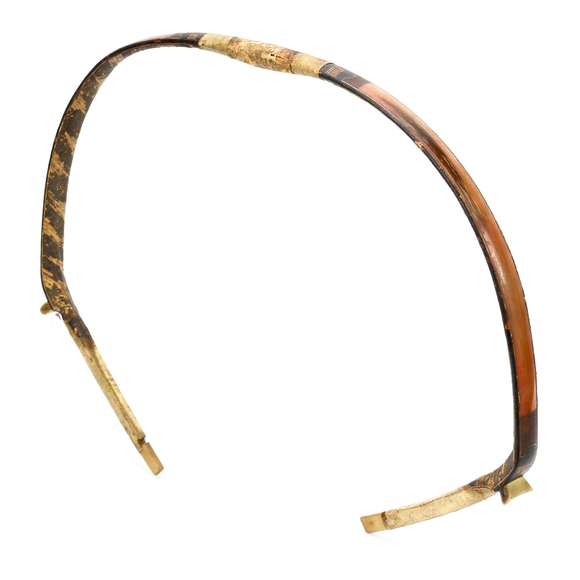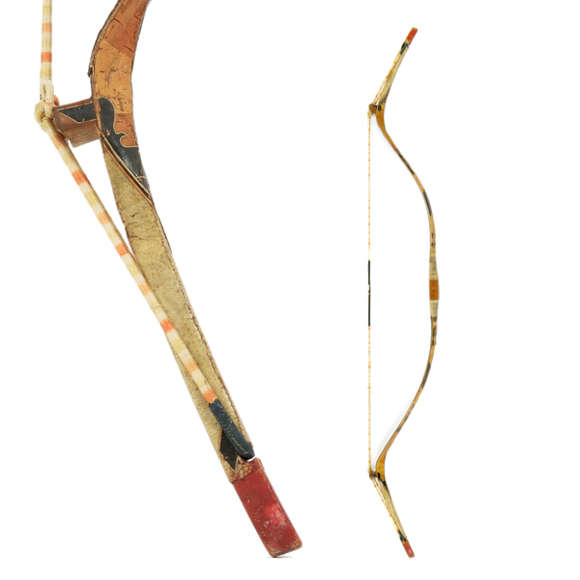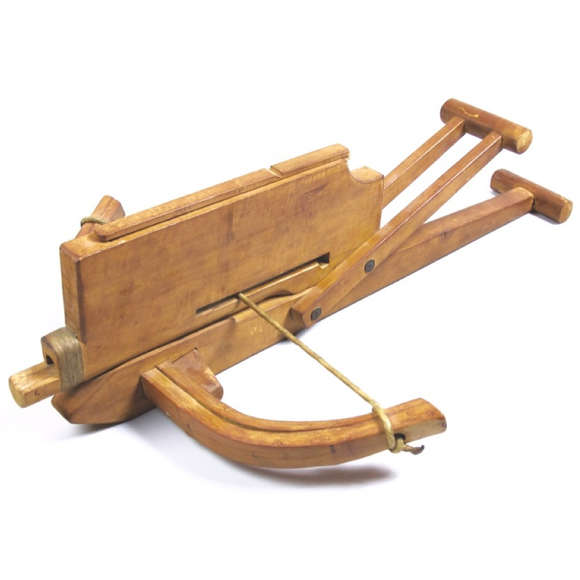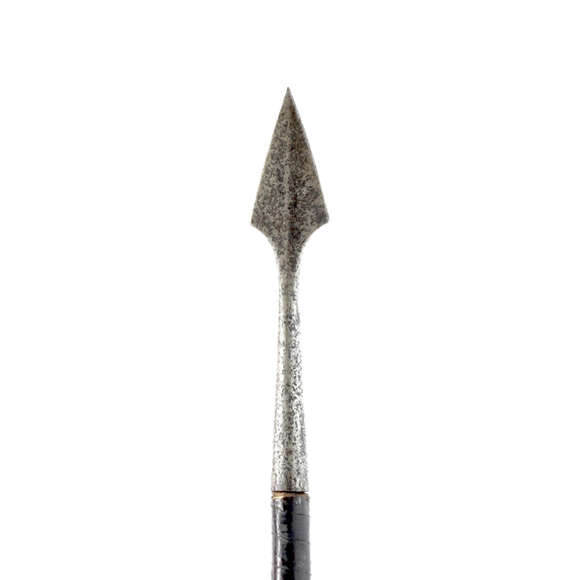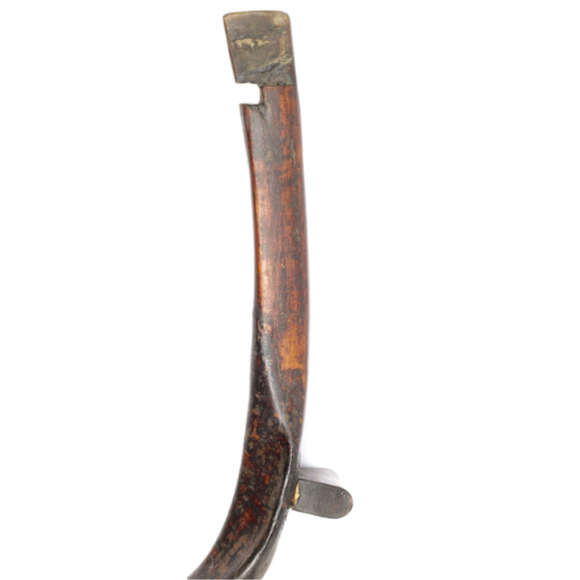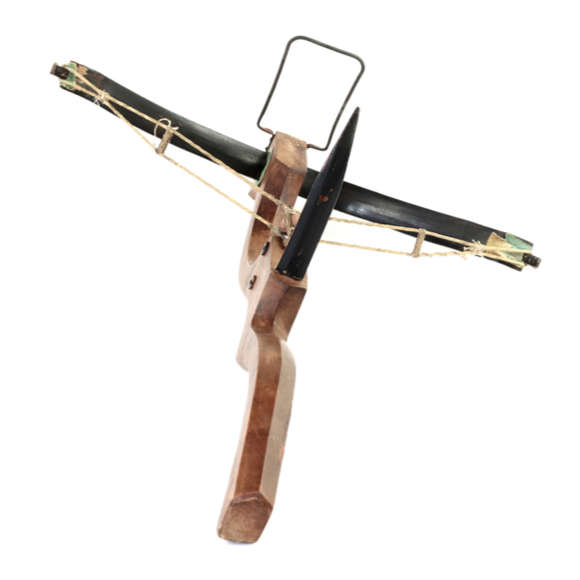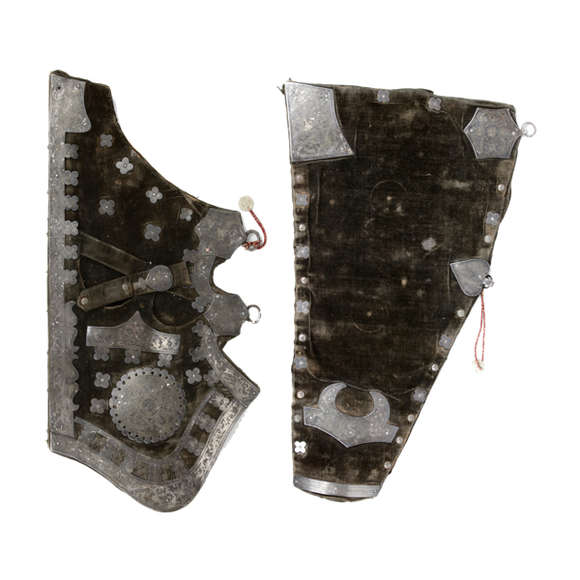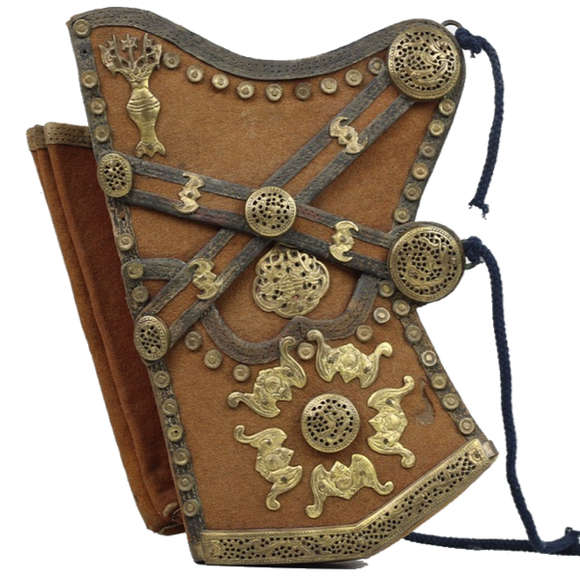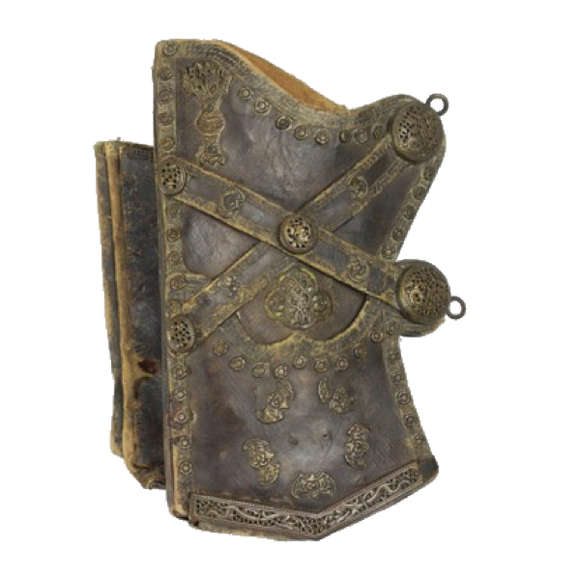Repeating pellet crossbow stock
A very rare variety of the Chinese repeating crossbow that shoots large pellets.
SoldRare imperial xièzhì decorated quiver
Xièzhì are mythical animals and were the emblem of the Qing censorate.
GalleryMongol conquest period quiver
Carbon dated to 1175-1275 A.D. with 95,4% certainty, the height of the Mongol conquest period.
SoldTibetan bowcase & quiver
A matched set of lacquered leather, finely decorated with gradient colors and black and gold detailing.
SoldBow by Ju Yuan Hao of Beijing
Made by the last operational bowyer of China, probably for the Mongolian market.
SoldRepublican period whistle arrow
Dating from the revival period of Chinese archery in the 1930s.
SoldEarly lacquered quiver
It's face covered with beautifully lacquered leather, in that characteristic earlier style.
SoldMalachite Manchu archer's ring
Such rings were worn by Qing dynasty "bannermen" as a sign of their status as a conquest elite.
SoldA Qing strength bow
A very heavy Manchu bow used for strength training and military examinations.
SoldA deconstructed Qing bow
For the bowyers, a set of parts of an authentic 19th century Qing bow.
SoldQing folding bow
A short-eared composite bow with an iron hinge in the handle so it folds upon itself.
SoldVintage Korean archery set
Comprising of a bow, arrows, and string sent to the U.S.A. in 1964 plus an associated quiver.
SoldA Sirdan, or Manchu war arrow
This large and imposing type of war arrow is often compared to a small spear.
SoldA Qing imperial quiver
From my personal collection. A quiver that was once worn at court ceremonies by high ranked officers and imperial…
Sold
Items
